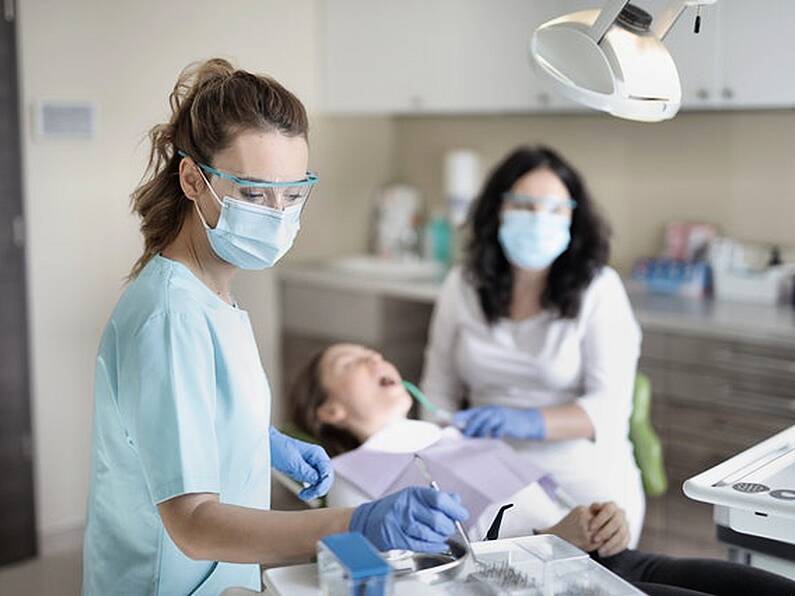World Oral Health Day takes place on March 20 with the aim of raising awareness on the importance of a healthy mouth for maintaining positive health and wellbeing.
According to Paul O'Dwyer of Dental Care Ireland, there are eight not-so-obvious conditions that a dentist can help diagnose...
1. Diabetes
People with diabetes can be more prone to oral health problems such as gum disease, dry mouth, poor healing and oral infections. Swollen or bleeding gums, bad breath, and progressive bone loss can all be indicators of undiagnosed diabetes. In most cases, oral complications can be easily treated, but a thorough dental health routine is an essential part of learning to live with the condition.
2. Heart Disease
Studies show that gum disease and inflammation of the gums may be associated with an increased risk of developing heart disease. If you have a family history of heart disease or other risk factors such as high blood pressure, practising good oral hygiene is especially important, as it lowers the bacterial count in your mouth. Contact your dentist or doctor if you notice any signs of swelling or infection around the gums and teeth.
3. Oral Cancer
As part of a routine dental check-up, your dentist will examine your mouth for any changes, which may include symptoms of mouth cancer. Some signs of mouth cancer might include ulcers that do not heal within three weeks, red or white patches in the mouth, a lump or other unusual change in the mouth or neck, difficulty swallowing or chewing, persistent sore throat or hoarseness, and unexplained loose teeth.
4. Sinus infection
Infected sinuses can cause pain in the jaw and around the teeth, which can frequently be mistaken for a toothache by patients. Sinus tooth pain is primarily felt in the upper molars, affecting several teeth instead of only one. If there are no obvious abscesses, cavities or gum disease, your dentist may suggest speaking to your doctor or an ENT (Ear Nose and Throat) Surgeon about a sinus infection.
5. Stress
Stress can affect the immune system’s response, sometimes resulting in inflammation of the gums, as well as unexpected mouth sores such as ulcers or cold sores. Increased anxiety and stress can also lead to teeth grinding or clenching, known as bruxism. Symptoms of bruxism include worn, damaged or sensitive teeth, soreness around the jaw in the morning, headaches or making a grinding sound while asleep.
6. Osteoporosis
Osteoporosis is a disease in which the density of bone is reduced, which can increase the risk of fracture. Your dentist may notice symptoms of tooth loss or gum disease that can sometimes indicate the early stages of the disease. Routine comparisons of previous dental x-rays are one indicator which may show a decrease in bone density in the jaw and around the teeth.
7. Anaemia
Iron deficiency anaemia occurs when a lack of iron reduces the number of red blood cells that carry oxygen around the body. Some common symptoms include fatigue, dizziness and palpitations. During a routine check-up, your dentist can sometimes notice a change in the colour of your gums and tongue, which could indicate anaemia.
8. Vitamin deficiency
A balanced and varied diet is essential for maintaining a healthy mouth. A deficiency of vitamins and minerals can lead to many oral health problems, such as gum disease, increased infections, delayed healing, dry mouth and loss of sensation in your tongue. Fresh fruit and milk are rich in vitamins C and D, which are necessary for keeping gums healthy. B vitamins are also particularly important for oral health.
You can help keep your mouth healthy by following a number of key steps:
- Brush your teeth twice daily, especially last thing at night
- Use a timer to make sure you brush for a full two minutes
- Floss teeth once a day to remove plaque, preferably before brushing
- Use a fluoride toothpaste to help keep teeth strong and prevent dental decay
- Reduce the frequency of sugary snacks and carbonated drinks
- Spit out excess toothpaste after brushing but avoid rinsing, so that fluoride remains on your teeth
- Drink plenty of water to help dilute any acid attacks caused by food or drinks
- Do not smoke
- Wear a mouthguard for contact sports
- Schedule a full dental check-up with your dentist at least once a year, or more frequently as advised
Photo by Andrea Piacquadio from Pexels






